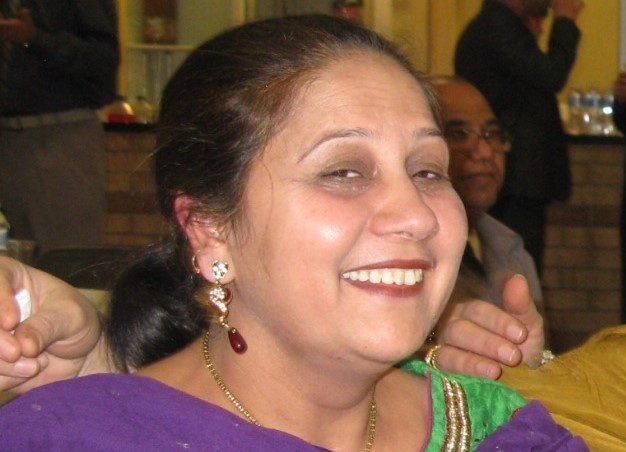Gill’s lawyer argues that there was no plan to murder his client’s wife
By Jeff Morris
Mad and crazy.
Those were the words repeated several times by Bhupinderpal Gill’s defence lawyer, James Harbic, as he talked about his client’s former lover, Gurpreet Ronald. Mad and crazy, Harbic said, were words first used by Ronald’s husband, Jason.
Gill and Ronald are both facing first degree murder charges for the Jan. 29, 2014 killing of Gill’s wife, Jagtar. The 43-year-old woman was beaten and stabbed in her Barrhaven home while recovering from surgery. The killing happened on the Gills’ wedding anniversary.
Both Mr. Gill and Ms. Ronald have pleaded not guilty.
Harbic argued that the Ronalds’ marriage was broken, and that Gurpreet Ronald had attacked her husband with a kitchen knife on three different occasions. He also gave details of how the romantic relationship between his client and Ronald had ended months before the killing.
“Jason Ronald described her as mad and crazy,” Harbic said.
The crown alleges that Bhupinderpal Gill and Gurpreet Ronald, both OC Transpo bus drivers from the same neighbourhood in Barrhaven, planned the killing of Jagtar Gill. Bhupinderpal was at Sobey’s in Barrhaven with Dilpreet, one of the couple’s daughters picking up a cake for their anniversary. The couple’s other two children were at school that day. Upon returning home, Gill sent his 15-year-old daughter and a nephew into the home first. She discovered the body of her mother, beaten, stabbed and bloody, on the floor.
Harbic argued that there could not have been a plan.
“There was no plan, there was no deliberation,” Harbic said. “It’s got to be the worse plan if it was a plan. If you sit down and look at what part of the plan makes sense, I can’t see any.”
Gill claims ‘brain freeze’
Harbic said that Mr. Gill had “brain freeze” after the incident. The weightlifting bar used to kill Ms. Gill was in a box in the basement. Harbic alleged that Mr. Gill grabbed the bar in case there was an intruder in their house. Mr. Gill later grabbed a replica of the bar that had been planted by Ottawa Police, and he discarded it in the nearby woods off Cedarview Road.
Earlier in the month, Harbic opened Mr. Gill’s defence by suggesting that Ms. Ronald killed Ms. Gill in an unplanned, “frenzied attack.” He added that there was no motive for Mr. Gill to have his wife killed.
Crown attorney Jason Neubauer contends that Mr. Gill and Ms. Ronald were involved in a love affair when they planned and carried out the murder of Ms. Gill so that they could be together. He told the court that Gill’s role in his wife’s murder was to make sure she was alone so that Ronald could commit the crime.
Speaking through a Punjabi translator when he was on the witness stand earlier in the month, Gill said he had a three-year affair with Ronald that ended in in the fall of 2013. He said he didn’t want the kind of turbulence in his own marriage that Ronald was experiencing. He also denied ever discussing killing his wife with Ms. Ronald.
Ronald maintains her innocence
When she took the stand two weeks ago, Ms. Ronald said she did not kill Ms. Gill. She also said that blood with her DNA was found in the Gill home because she had cut her finger on a knife as she tried to wipe blood off it. She contends that she was at the Gill home to borrow some tools.
On Friday, Ms. Ronald’s defence lawyer, Michael Spratt, argued that his client was not thinking clearly when she discovered Ms. Gill’s body.
“She didn’t call 9-1-1, and it’s a choice she regrets,” he said. He defended her actions upon her discovery of Ms. Gill’s body and offered an explanation for her DNA at the crime scene.
“She dropped to her knees, and came in contact with the knife,” he said. “As she was leaving, she thought about it. She goes back to wipe the knife. As she wipes the knife, she cuts herself.”
He added that Ms. Ronald was not thinking clearly at the time.
“There are illogical actions, but when you zoom out, you can see she’s on autopilot,” he said.
He said that just because she was in contact with Mr. Gill both before and after the killing may seem suspicious, but it is not evidence of a plan.






